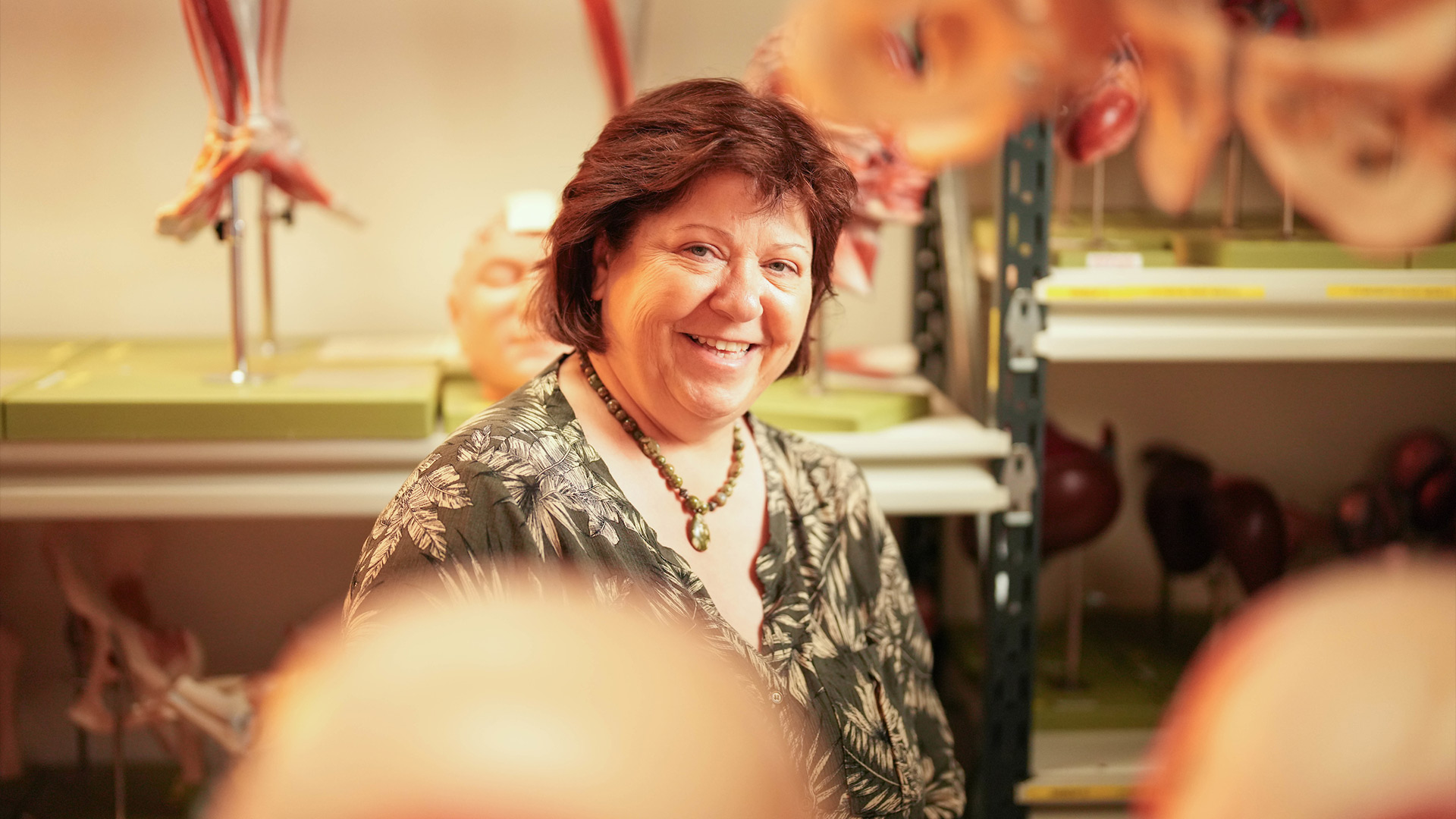Healing the first-year jitters: a guide to success in the medical program

How to navigate the leap from school to university while maintaining a social life? And who can students ask for help if they find themselves struggling? As the new academic year looms on the horizon, we sat down with seasoned lecturer Associate Professor Krisztina Valter from the Australian National University (ANU) College of Health and Medicine who shared her top tips for first-year students gearing up for the exciting journey ahead.
Krisztina Valter wears many hats. She is the Head of Anatomy Discipline, Chair of Medical Science, and Program Convenor of the Bachelor of Health Science program at the ANU School of Medicine and Psychology. Late last year, her tireless efforts and contributions to teaching and supporting students were recognised with a Dean’s Commendations for Teaching Excellence Award.
We inquired about what first-year students could do to make their transition from school to university a bit smoother.
“The transition will always be bumpy because it's so different. First-year students need to be patient with themselves and acknowledge that it's not an easy thing to do,” Associate Professor Valter said.
“I would suggest that they use their first year to ‘learn how to learn’ because studying at university is quite different from what they might be used to.
“If you are struggling, ask for support. Everyone is very happy to help, but you have to ask for it. Recognise when you need help, and reach out for it, whether it’s from academics, your tutor or your peers,” she added.
Associate Professor Valter emphasised the importance of establishing a network of people who will support you during challenging times.
“A good strategy is to develop networks, study groups, and friendships,” she said.
“These are very important, and often they will last for life. Building those networks early on will support you through all the ups and downs of your study journey.”
The first year at university can be quite overwhelming. Associate Professor Valter recommends students who find themselves struggling reach out to their course convenor.
She explained that most courses begin with an introduction, including the convenor’s contact details or information about specific times when students can come and talk to them. Additionally, students can find these details on Wattle, the University’s learning platform, which provides all the necessary information about the course.
Associate Professor Valter suggests that students also contact their course convenors when they encounter challenges in their personal life.
“If they cannot help you directly, they know who you should talk to,” she said.
“ANU offers a lot of support mechanisms. When you are experiencing problems, don't hide away. Don't be afraid to ask. Let us know, so we can help you.”
Via the ANU website, students can access a variety of initiatives, programs, and resources that will support their physical, social, spiritual, and mental health to help them maintain a healthy lifestyle during their studies.
“Another important resource are the class representatives,” Associate Professor Valter said.
Class representatives are students tasked with representing the cohort of a class, fostering effective communication, and facilitating engagement between course convenors and students.
When asked how students can balance their academic responsibilities with their personal well-being, Associate Professor Valter said: “Again, this comes back to friendships and making sure that you enjoy your time at university.
“Studying is important, but you can study much better if you are healthy and happy.
“Don't just go home, shut the door, and study, study, study.
“I know, for some people, it's tempting to do so, but in the long run, you need to be able to have a release button somewhere; something that you enjoy. It makes studying so much easier.
“Whether you participate in a team sport, attend a yoga class, play music together, or join a book club; make sure you pursue interests outside of your studies.”
Associate Professor Valter urges first-year students to join one of the many student associations at the University, such as the ANU Students’ Association (ANUSA). The best way to find student associations is having a walk down University Lane during Orientation Week, where most associations will have a booth on Market Day.
“If you join a student association straight away, you can learn a lot from your peers, especially those in advanced classes who have already gone through year one,” she noted.
She also encourages first-year students to start thinking about where they might want to take their career.
“You don’t need a concrete plan yet,” she stated, “but starting to contemplate where you see yourself after completing your degree and where you would be most happy will assist you in deciding which courses to take or which skills you want to develop during your studies."
“Students might consider participating in programs involving overseas trips, picking up a new language, or learning about different cultures,” she said.
“In essence, a well-rounded education equips students with a broader perspective, better preparing them for the dynamic challenges of their future professional field.”
Her final piece of advice was for the Bachelor of Health Science students to be on the lookout for learning opportunities beyond medical science.
She explained that while understanding medical science is crucial, exploring subjects beyond it help develop critical thinking, problem-solving, and a well-rounded view of patient care.
“Exposure to various disciplines enhances adaptability, making healthcare professionals more versatile in addressing complex healthcare issues.”
